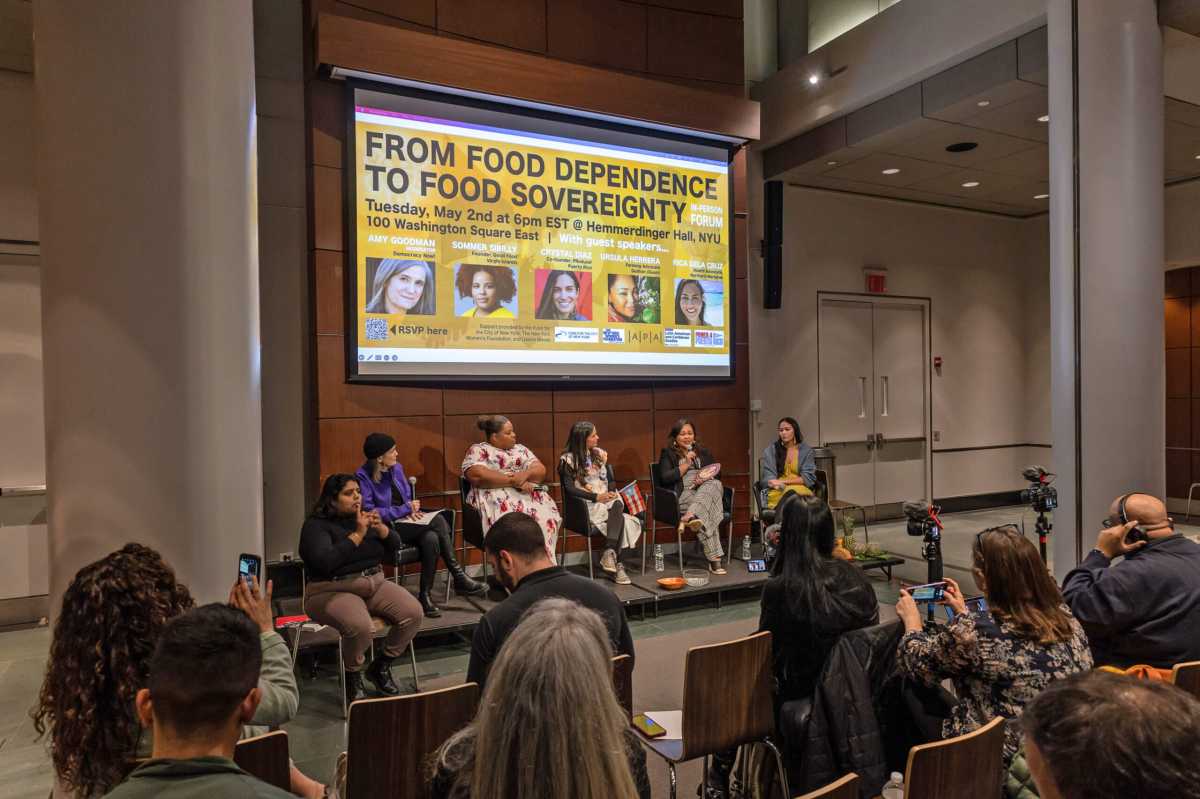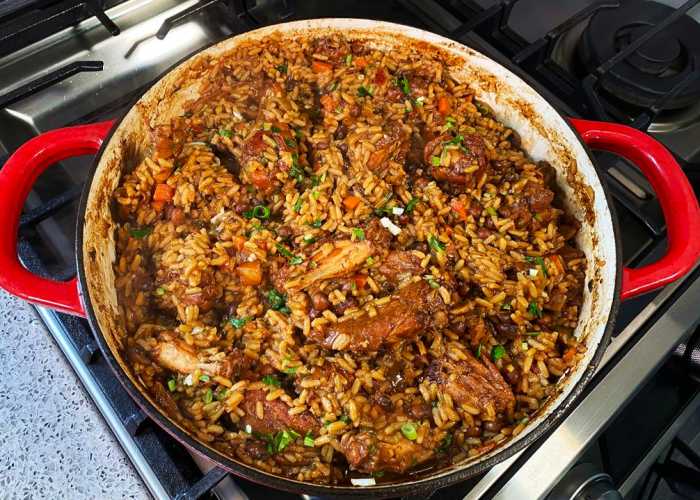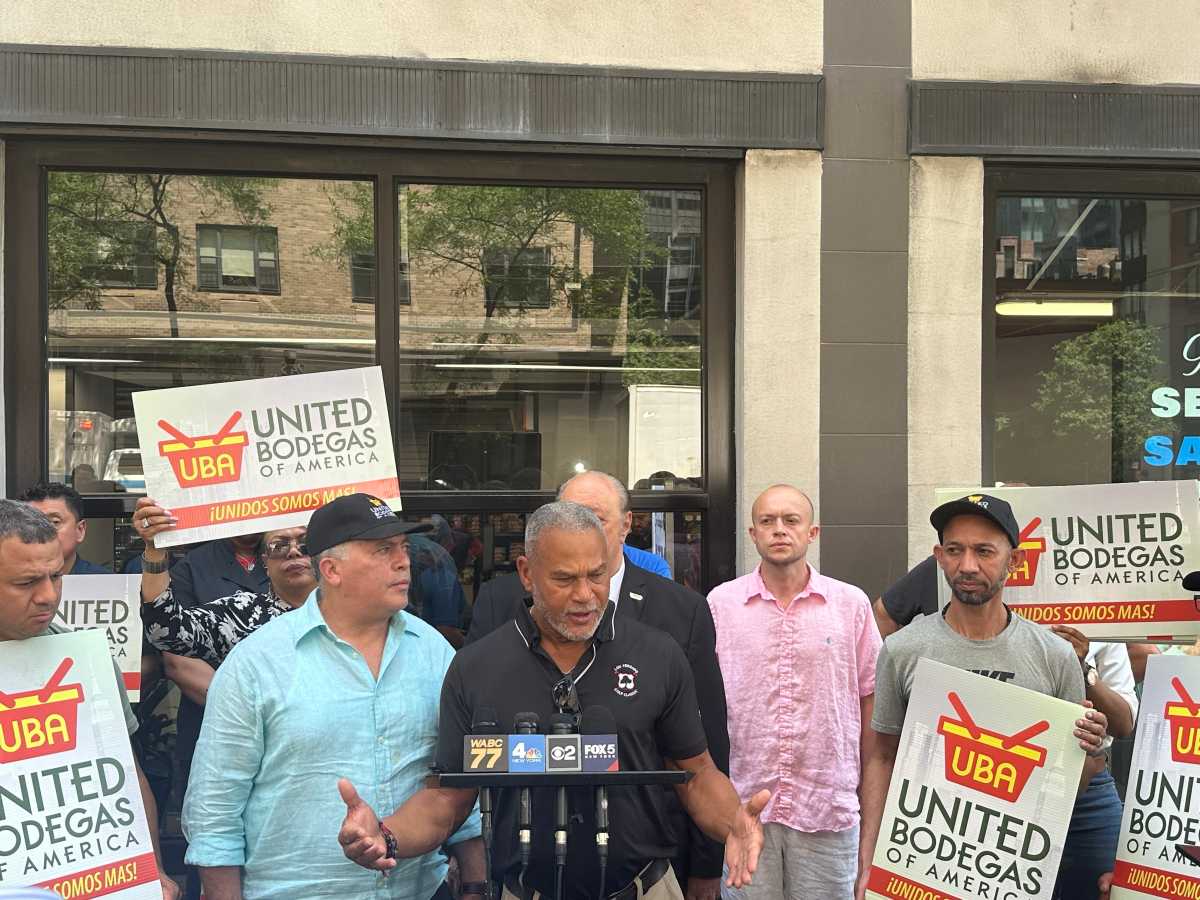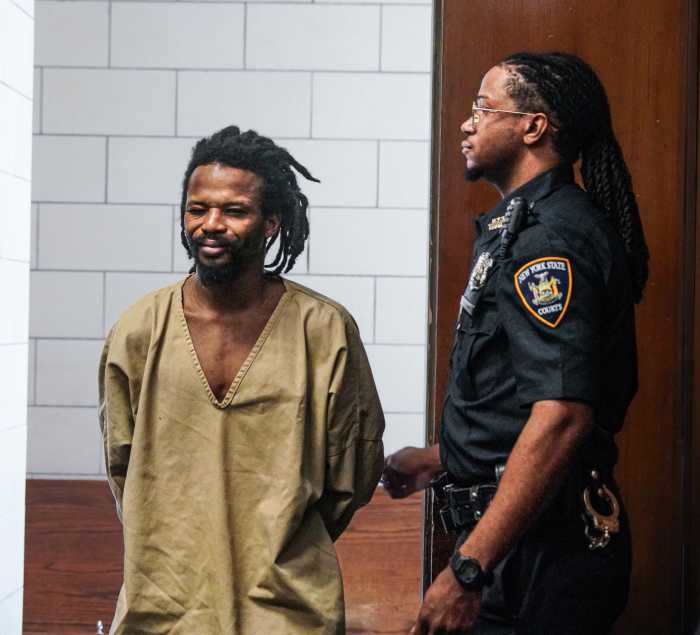Several female leaders have discussed ways to achieve food sovereignty and the use of an app to help farmers connect to residents during a panel discussion on “From Food Dependence to Food Sovereignty,” held at New York University (NYU) on May 2.
Journalist Amy Goodman of Democracy Now! moderated the panel, which was co-sponsored by Power 4 Puerto Rico Education, the Center for Latin American and Caribbean Studies (CLACS) and the Asian/Pacific/American Institute (APA Institute) at NYU.
Guest speakers during the panel included Sommer Sibilly-Brown, who is a native of the U.S. Virgin Islands (USVI), as well as founder and executive director of Virgin Islands Good Food Coalition (VIGFC). They discussed the movement to reclaim their lands through their advocacy, sharing solutions they see, and are actively working on, to achieve food sovereignty.
Other speakers included Crystal Diaz, who is a native of Puerto Rico and a co-founder of the PRoduce app, and Ursula Herrera, who is a sustainable farming and traditional medicines advocate from Guahan (indigenous name for the U.S. territory Guam).
The USVI nonprofit is dedicated to improving food security, food sovereignty and agro-sustainability for all residents in the territory.
Sibilly-Brown defined food sovereignty as “the right of people to have self-determination or choice over the food that they consume, the right of that food to be representative of the place and space where they live.”
According to Sibilly-Brown, the reason why the USVI imports 97 percent of its food is systemically by design. She said this is a result of using the place as a possession and taking land from the people living there, thus the production capacity wanes.
Diaz stated that Puerto Rico has become a marketplace for U.S. corporations to sell their food. She highlighted that as a result of this, people living there don’t have nutritious, healthy food to eat when hurricanes, droughts or the effects of climate change hit.
The app that Diaz and her fellow co-founders created, PRoduce, helps connect local Puerto Rican residents to local farmers and locally grown food.
“Food sovereignty, to us, to me, is just the ability to control our food growing systems. You know, for 4000 years, our lands and waters have fed us. It’s a return to that, to making those decisions and controlling the narrative without outside interruptions or forces dictating to us,” said Herrera.
She also shared that she learned a lot about plants and how to use them to make certain teas from her grandmother, who had raised her. She emphasized how knowledge like this needs to be preserved and saved.
To stay updated on the work of Sibilly-Brown and the VIGFC, those interested can follow the organization on Facebook. To stay updated on the work of Diaz, they can follow her on Instagram.
Those interested can stay updated on the work of the Power 4 Puerto Rico Coalition on Facebook.
Those who are interested can find information on CLACS upcoming events and public programs here, and upcoming APA Institute events here.


























